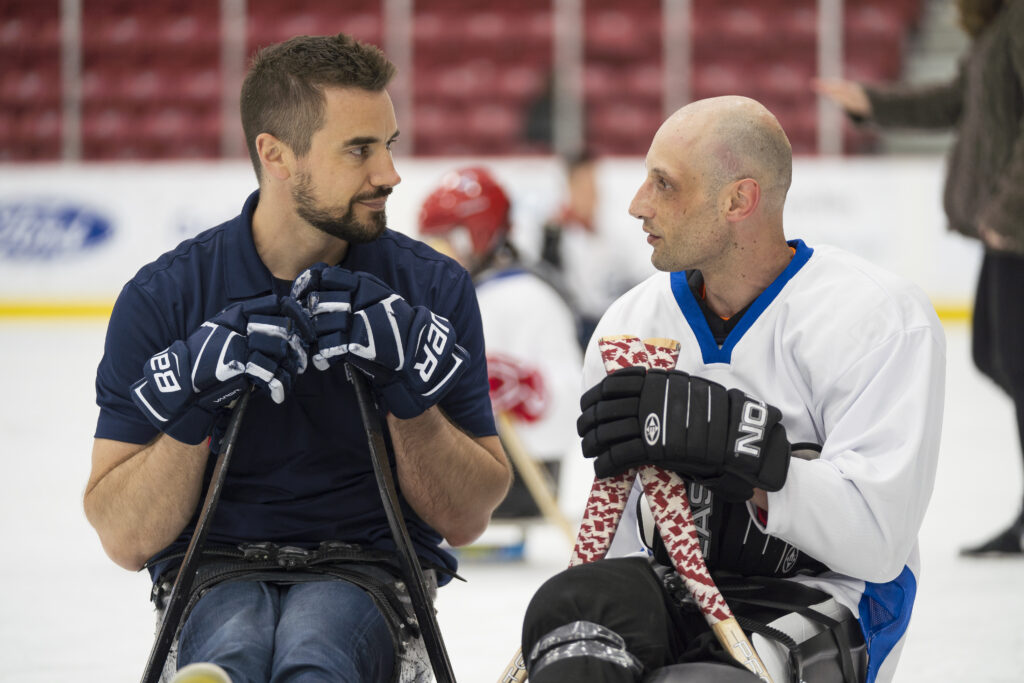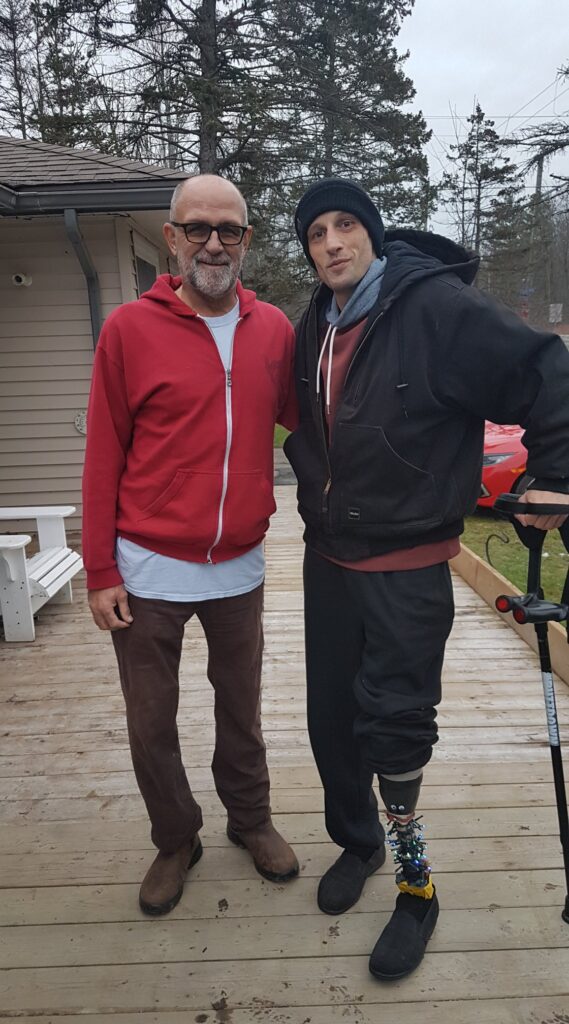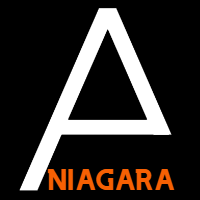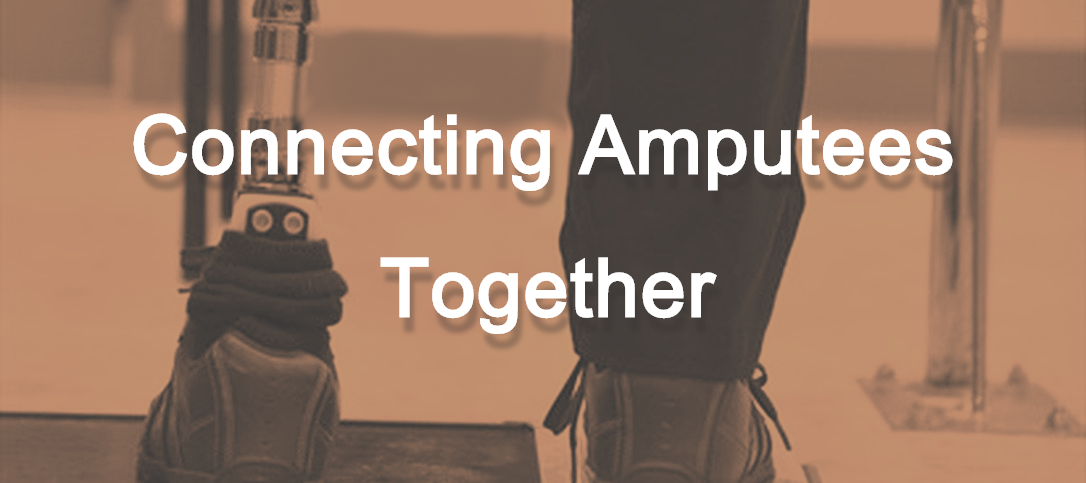Living a Healthy Lifestyle is important for anyone, but for Amputee’s it becomes a matter of lifetime expectancy. Having your mobility and activity limited over years can eventually breakdown your body and create a multitude of health problems. ACN Recognizes this and will be posting information here on what you can do to live the healthiest lifestyle possible!
Healthy Eating
No one amputation is the same, just as no one person is the same. Its because of this that living a healthy lifestyle will be different for everyone. The one thing that anyone can do is have a proper diet. Individuals will all have different needs based on their medical situation or personal goals. The leading cause of lower limb amputations are complications resulting from Diabetes. Someone with Diabetes is probably aware of this already, however the importance of diet becomes paramount following the loss of a limb. Weight loss for some people can be a factor in determining a persons eligibility for wearing a prosthesis. Weight gain is something a lot of people struggle with, some due to their illness or treatment for their illness and some people are genetically under weight

There recently has been some great research on how different foods can help or hinder various symptoms that people experience. Anti-inflammation diets can help alleviate pain by reducing swelling naturally with out medications is a great example of newer research that is being developed by teams out of Brock University.
There are countless reasons that everyone should have some focus on what they are putting into their body. The better the fuel that you put into your engine, the better the performance of your vehicle!
Active Lifestyle
Not every Amputee will be eligible to have a prosthesis. That does not mean that it is impossible to maintain an active lifestyle. There are a lot of benefits to being Active, but like everything it most definitely is a choice. A person can be active by doing things like Yoga or Pilates, playing different sports, going to the gym, or just simply going for regular outings – whether its in a wheel chair, on your prosthesis or however you get around. There are many resources on-line to help Amputees with learning how to do new things like what has been mentioned, however in Niagara we are very lucky to have a facility operated by Brock University called POWER CORD. Power Cord is a fully adaptive gym for people with spinal cord injuries, amputations as well as any other physical challenge that might limit their ability to use a public facility. It is located at the Brock Center for Health and Wellness in St. Catharines and is operated by the Kinesiology Students. As a member you will have a routine developed to suit your personal goals. The students are there to assist with equipment, run different circuit training sessions, help with specific individuals needs in order to work out and really make the whole atmosphere a positive and encouraging one. (due to current Covid-19 Restrictions, services at Power Cord have been greatly affected. While the gym is still open on a limited basis, you must contact them directly for any specific information regarding your membership)

If playing Sports interests you, Niagara is home to several options for people to try. ACN in its infancy really would like to help build Para Sports in the Niagara Region. Niagara has a history of putting out some Great Amputee Athletes on to the International Stage. Brock University really is a leader for Adaptive Sports in the region, and offer the Brock Penguins Program. Not specifically for Amputees, they do offer programs available to all ages for people with a physical impairment. Sports included in their program are not limited to: Boccia, Swimming, Hand Cycling, Sitting Volleyball, Wheelchair Basketball, Wheelchair Racing and more!!! Another Team sport that has massive popularity in Canada is Para Ice Hockey (formerly known as Sledge Hockey), The Niagara Thunderblades is the local team and has been an introduction for several National players.

There are also individual Para Sports that Amputees in Niagara participate in, and that are easily available for anyone to try. Para Nordic Skiing, Downhill Mono-Skiing, Downhill Outrigger Skiing, Kayaking, Para Golf, Track and Field, Swimming, and more!! One of our Members is actively starting a Niagara Wheelchair Curling initiative which will be another option for many people to give a try and get active. With individual Para Sports, you are not limited to what someone else is doing or has done locally. It is sometimes easier to have local guidance, but never let that stop you!
Social Interaction
Part of maintaining a Healthy Lifestyle is to include a certain amount of social interaction. Not only with other Amputees, but with all your friends, family and even within the community. The most important tool an Amputee has access to is a network of Peers in similar situations. Having people to relate to that have been through or are still going through something that you are experiencing, and doing so successfully can be the most impactful part of someone’s recovery.

The Amputee Coalition of Niagara has built a foundation for a strong Peer Support Community. The Social Media Presence through Facebook has a new feature that can have a new Amputee find a Mentor to help them through their journey. The Mentor program is different from the Peer Visiting Program in that it is an ongoing relationship that is developed mutually and requires no Certification. It is a way for someone who may not be as open about their questions to find someone they can get answers from.
ACN is proud to associate with the Amputee Coalition of Canada for our Peer Visiting Program. The ACC offers a certification program to train Amputees to be Peer Visitors for new Amputees. This program is in place for someone who has very recently lost a limb, is still in the hospital or is an inpatient at a recovery facility, or who may have just been told they are about to have an amputation. If an Amputee wishes to give back to the Amputee Community as a Peer Visitor, that person must successfully complete the Peer Visitor Training Program. The reason the ACN has made this a requirement is to have accountability, if for any reason there is any issue with a Peer Visit there is a system in place to address anyone’s concerns. The Program has been widely successful across North America as it was developed by the Amputee Coalition of America.
The reason Peer Visiting and Mentorship is included as part of Healthy Lifestyle is because it really is important to a persons mental health. A Healthy Lifestyle is definitely not limited to your physical health, in fact your mental health could arguably be the first area to ensure is in the best possible condition prior to or directly after an amputation. Depression is a very important medical situation that needs to be identified and helped by professionals as soon as possible. A proper Peer and Mentor program can help identify a problem early on which can help a professional intervene before it can be harmful. Depression can lead to a lot of other medical problems and in severe situations can lead to suicide. We can not stress enough that if you are having feelings of depression to reach out, if someone asks you about how you are feeling be honest – we have been there too. There is hope, there is help and as bad as things can feel know that you are not alone.
Canada Suicide Prevention Service Hours: Available 24 hours for calls; Available 4 PM—12 AM ET for texts. Languages: English, French. 833-456-4566 SMS: 45645

